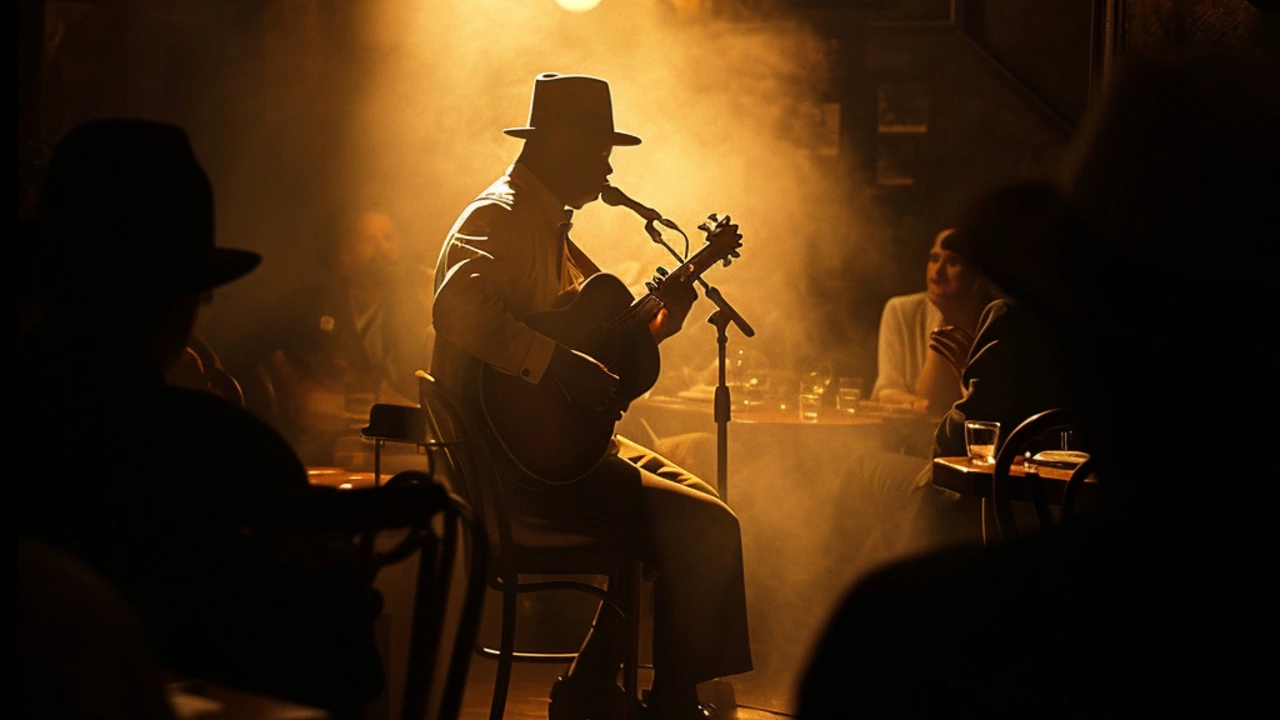The Birth of Blues Music
Let's embark on a journey together, one filled with sweet melodies and doses of history. It's time to talk about blues music and its role as a catalyst during the Civil Rights Movement. Just picture it, African rhythms intertwining with the soulful voice of a singer, painting stories of struggle and hope. This is the mighty blues music, woven from the threads of African musical traditions and shaped by the harsh realities of African American life in the southern United States. The history of blues may have started from the melancholic whispers of slaves, but its reverberations spread far and wide, echoing the calls for freedom and equality.
Sorrow Songs: The Essence of Blues Music
Blues music was also referred to as "sorrow songs" by African Americans. These songs touched upon universal themes of heartbreak, sorrow, and struggle, which were mirrored in the lives of African Americans, thereby acting as their emotional outlet. These were the world's most beautiful cries, swaggering musically to a beat that was heartfelt and raw. Remember, blues isn't merely a genre; it is the audible embodiment of an emotional journey, birthed from hardship yet resilient in hope.
The Influence on the Civil Rights Movement
Blues music wasn’t just another genre that people bopped their heads to. It was a powerful communication tool, and during the Civil Rights Movement, it was a beacon leading the people towards equality. The soulful notes of blues music resonated with sentiments of the movement - sentiments of resistance, vitality, and a call for progress. It was a collective musical, giving its listening audience not just sonic pleasure, but messages of hope, courage, and the courage to dream of a better tomorrow.
Major Artists: Voices of the Struggle
During this era, several Blues artists rose to prominence and reflected their struggles through their music. Musicians like Muddy Waters, B.B. King, and Nina Simone - these are names etched in the annals of blues history, names who used their lyrical storytelling to paint vivid scenes of black America. Their songs became battle cries, infused with potent narratives of resistance against racial injustice. Blues music became a shared experience that spoke to the heart of the African American community. This music was undeniably powerful, a raw statement against prejudice, and against a world that remained indifferent. Rarely do we encounter a genre so firmly rooted in such depth of emotion and social consciousness.
Relevance in Today's Society
The Civil Rights Movement might be done and dusted, but blues music remains as relevant as it was back then. The themes and the struggle it embodies are timeless, reflecting challenges that remain in society even today. The battles may have shifted, but the ethos of the fight remains. The sentiments blues expressed all those years ago are still very much alive. Blues music now sparks conversations about modern-day civil rights, equality, and justice. It's a cultural artifact that transcends time and space, radiating an age-old call for change that still resonates with us today.
The Power of Blues: An Unforgettable Story
Now for something slightly off-course, yet still relevant: a personal tryst with the blues. It was a visit to a small blues joint in downtown Memphis that changed my life forever. What started as a spontaneous decision (and a dash of curiosity) turned into an experience so powerful. The explosive energy, the soulful tunes ringing through the air, the raw emotions erupting from the stage and the crowd - it was intoxicating. This is the real spirit of Blues, not just a musical genre, but a shared experience, a collective emotion that's lived and breathed together. It was not only intoxicating but transformative, a powerful testament to the magnetic allure and relevance of blues music.
Closing Thoughts
Blues is deep, transformative, and infused with a palpable sense of emotion. It's meant to be felt, lived, and above all, understood. The influence it held over the Civil Rights Movement perfectly displays the genre's potency, expressing the resilience of a people who chose not to remain silent. And while the blues has its roots firmly in the past, it remains as crucial as ever, promoting progress and social change even today. Pay a visit to a blues joint, or just slip on some headphones and let the sound take you where it will. You'd be surprised where you might end up.

